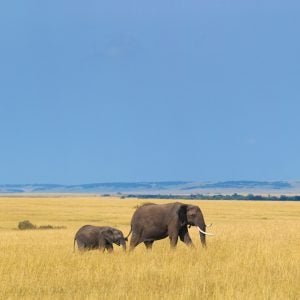
African elephants are threatened with extinction. At the same time as they are being poached for their tusks, they are also being squeezed into smaller and smaller areas by the growing human population and activity.
In many African countries, elephants are confined unnaturally to protected areas or reserves. As they reproduce, herds reach the point where they exceed the capacity of their enclosures. As a result, there may not be enough food available for the elephants, and they sometimes escape in search of it. Naturally, humans are unappreciative of animals who eat or destroy their crops and, as a result, human-elephant conflicts arise.
Culling used to be a common practice for controlling elephant populations. Other alternatives, such as capture and translocation, are costly and dangerous for the elephants. Fortunately, in recent years, new methods have proven to be more successful and more humane.
Humane Society International has been working with scientists since 2000 to develop one technique in particular that has had very positive results—immunocontraception. This involves using a vaccine to control reproduction in targeted females. Using this method on a small population of free ranging elephants in the Makalali Private Game Reserve in South Africa, researchers observed a zero population growth rate for a number of years before revising the intervention to allow a stable growth rate of 2-3%. As of October 2021, more than 1200 female elephants in 40 parks and reserves across South Africa had been treated.
